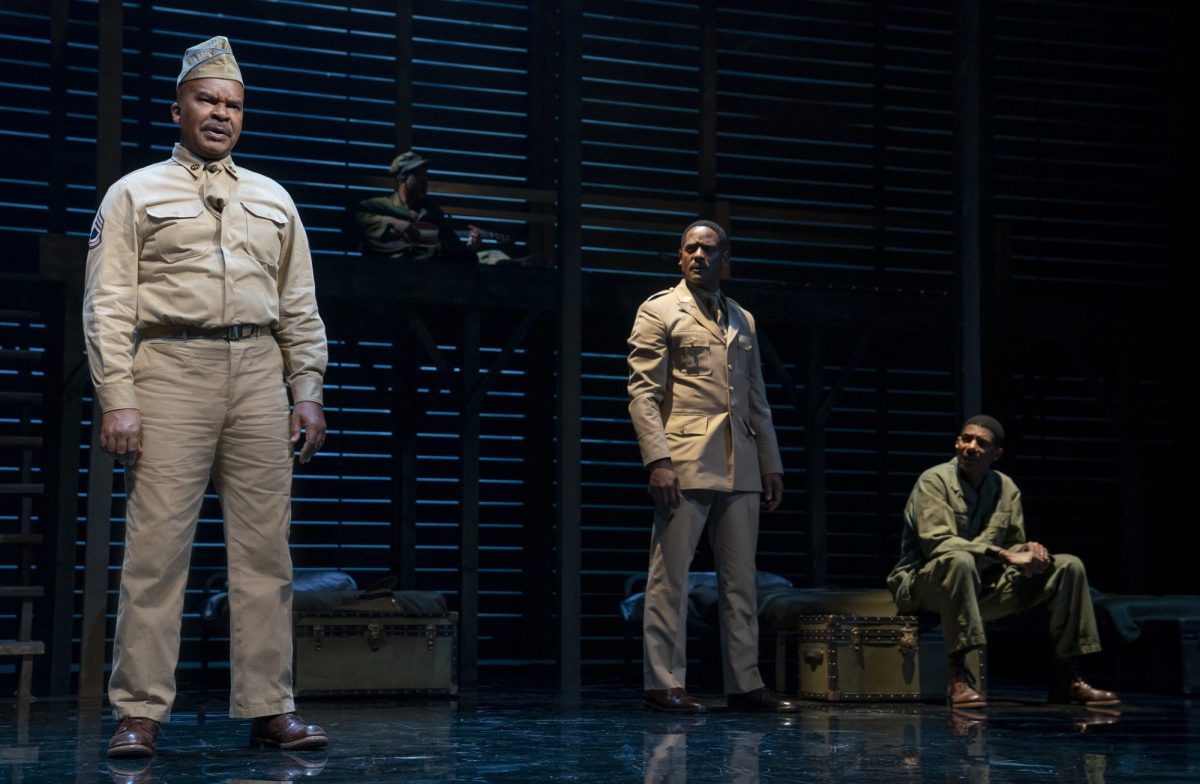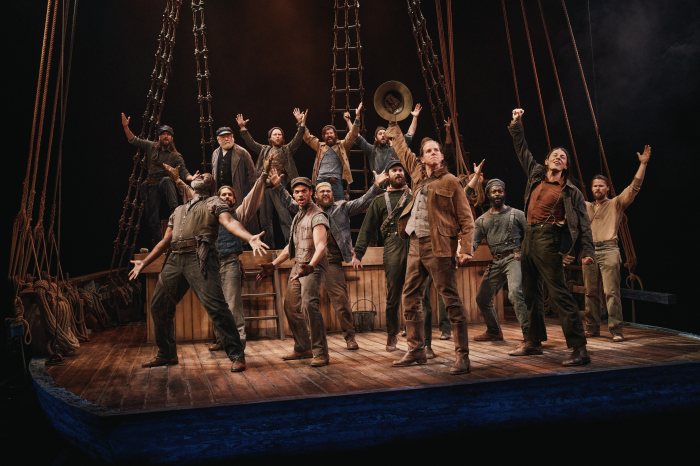Late one night in 1944, outside a U.S. Army base in Louisiana, a middle-aged black sergeant, apparently in a drunken stupor, cryptically declares again and again, “They’ll still hate you!” – and is shot twice by an unseen assailant.
This jarring and mysterious incident serves as the opening of Charles Fuller’s 1981 Pulitzer-winning military drama “A Soldier’s Play,” which is playing Broadway for the first time in a high-powered revival produced by the Roundabout Theatre Company, directed by Kenny Leon (“American Son,” A Raisin in the Sun”) and starring Blair Underwood (“L.A. Law”) and David Alan Grier (who appeared in a different role in the 1984 film adaptation, which was retitled “ A Soldier’s Story”).
Following the murder of Sergeant Vernon C. Waters (Grier, strutting and unhinged), Captain Richard Davenport (Underwood, cool and soft-spoken) arrives at the base with instructions to investigate and solve the mystery. Virtually everyone he encounters is shocked to see that Davenport is a black officer. Captain Charles Taylor (Jerry O’Connell, startled), who was Waters’ superior, has difficulty just comprehending the idea that an African American can be his equal in rank.
The most obvious culprits for the murder would be members of the Ku Klux Klan in the neighboring town, but the facts are problematic. Interviews with the black soldiers who were under Waters’ command reveal that Waters was a vicious and vindictive, complicated and corrupt individual who could have driven several of them to murder.
For the most part, “A Soldier’s Play” makes for an involving mystery saga – not unlike a particularly good episode of a television legal drama such as “Law & Order.” But is also a cutting expose of racism not just between whites and blacks in a segregated army, but also among African Americans themselves.
In flashbacks, Waters is shown to espouse a ruthless disdain for black men who he believes fall into stereotypical patterns of behavior and hold back others such as himself from achieving social mobility. In one especially disturbing moment, Waters goes so far as to like his tactics of targeting those who do not meet his standards to those of the Nazis.
Some scenes depicting Davenport’s fact-finding and investigation can be dry and clunky. But under Leon’s sharp and ensemble-oriented direction, the play’s cultural and political dimensions take on extended emphasis, bringing the gap between World War II-era America and the present day in its exploration of the effects of racism and the need to confront uncomfortable facts and arrive at the truth.
At my performance, a brief moment where Underwood appeared shirtless led to cheers from a few audience members. Perhaps they were really just cheering on the character, rather than admiring Underwood’s muscle tone?
3.5 stars
“A Soldier’s Play” runs at the American Airlines Theatre through March 15. 227 W. 42nd St., roundabouttheatre.org.



































